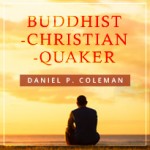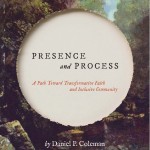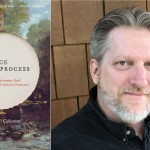![Flaming Chalice, By United States Department of Veterans Affairs (http://www.cem.va.gov/hmemb.htm) [Public domain], via Wikimedia Commons Flaming_Chalice.svg](https://wp-media.patheos.com/blogs/sites/770/2017/05/Flaming_Chalice.svg_-300x269.png)
Although I am a Christian Quaker (who also practices Buddhism), I occasionally attend a nearby Unitarian Universalist (UU) church on Sunday mornings. There is a long history of appreciation and support between Quakers and UU’s. It is not unusual, for instance, to discover that a small Quaker meeting who can’t afford their own building meets instead in space provided at a UU church. Last Sunday at my local UU church a Quaker taught an afternoon class on peace activism. [It was at the same UU church where a couple of years ago I took my first classes in Theravada Buddhist mindfulness meditation.]
Although the Sunday morning UU church service tends to be a bit too structured and liturgical and traditional for my taste, I can put up with the format in exchange for the nuggets of inspiring truth and wisdom I invariably walk away with. And the people are wonderfully inclusive and friendly. They also tend to have an amazing plethora of activities and opportunities available through the church: Want to work in a food pantry for struggling families? Help with housing for the homeless? Engage in interfaith dialogue with a nearby mosque? Help seniors with meals and errands? Advocate for women, or LGBTQI youth, or the incarcerated, or migrant workers, or the climate? March in a protest? Participate in a drum circle, or a book discussion group, or a quilting club, or a roving dinner group? Sign up sheets are in the foyer.
The thing that impresses me most about the UU’s, however, is their doctrinal statement. We Quakers follow the ever-present Inward Light and are notoriously anti-creedal. We shy away from doctrinal statements (or, at least, ought to), but I appreciate how the UU’s have managed to craft a statement that intentionally points in the opposite direction from the narrowness and exclusivity which creeds and doctrinal statements usually foster. Their’s is sort of an anti-creed which is designed to expand their view outward rather than collapse their view inward. Instead of creating boundaries it knocks them down. They express it as seven guiding principles drawn from six sources.
The seven principles are:
* The inherent worth and dignity of every person.
* Justice, equity and compassion in human relations.
* Acceptance of one another and encouragement to spiritual growth in our congregations.
* A free and responsible search for truth and meaning.
* The right of conscience and the use of the democratic process within our congregations and in society at large.
* The goal of world community with peace, liberty, and justice for all.
* Respect for the interdependent web of all existence of which we are a part.
The six sources are:
* Direct experience of that transcending mystery and wonder, affirmed in all cultures, which moves us to a renewal of the spirit and an openness to the forces which create and uphold life.
* Words and deeds of prophetic women and men which challenge us to confront powers and structures of evil with justice, compassion, and the transforming power of love.
* Wisdom from the world’s religions which inspires us in our ethical and spiritual life.
* Jewish and Christian teachings which call us to respond to God’s love by loving our neighbors as ourselves.
* Humanist teachings which counsel us to heed the guidance of reason and the results of science, and warn us against idolatries of the mind and spirit.
* Spiritual teachings of Earth-centered traditions which celebrate the sacred circle of life and instruct us to live in harmony with the rhythms of nature.
(Source: http://www.uua.org/beliefs/what-we-believe)
UU’s began as two separate Christian denominations, each one mostly orthodox except for a particular deviation from a standard Christian doctrine: For the Unitarians it was a rejection of the doctrine of the Trinity. For Universalists it was a rejection of the doctrine of Hell. In the mid-to-late 18th century Christianity in the West got caught up in the cross-currents of the liberal and evangelical movements. The Quakers experienced a tremendous schism as a result, where some went evangelical and some went liberal. Many denominations drifted by-and-large as a whole into one current or another. Unitarians and Universalists went liberal in a big way. Eventually the two denominations merged to become UU.
At a UU church it would not be unusual to hear an atheist warmly express insights from the Gospel of Luke and the Bhagavad Gita during a discussion about Earth-care in a workshop facilitated by a Tibetan Buddhist monk. The Easter sermon I recently heard at our local UU church managed to be an inspiring Christ-centered call to action yet did not exclude anyone from participating in Jesus’ vision of the Kingdom of God “on Earth as it is in Heaven.”
There are regular times when I focus on a particular faith tradition to which I belong, and so I attend a Quaker meeting, a Buddhist sangha, a Sunday morning Christian church service. But there are other times when I want to let the variety of human spiritual ideas swirl about me all at once and be surprised by what I glean from it. Those are the times I go to visit the UU’s.










